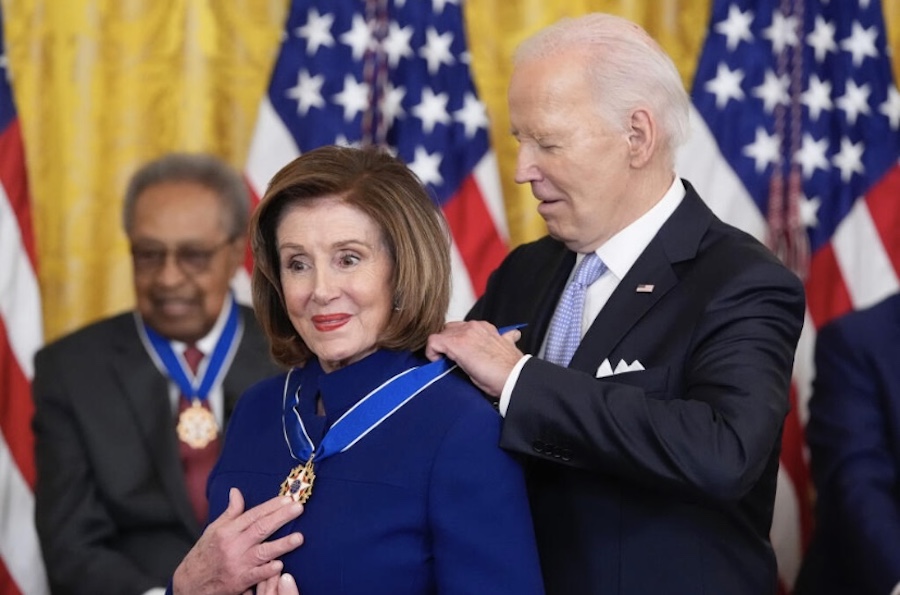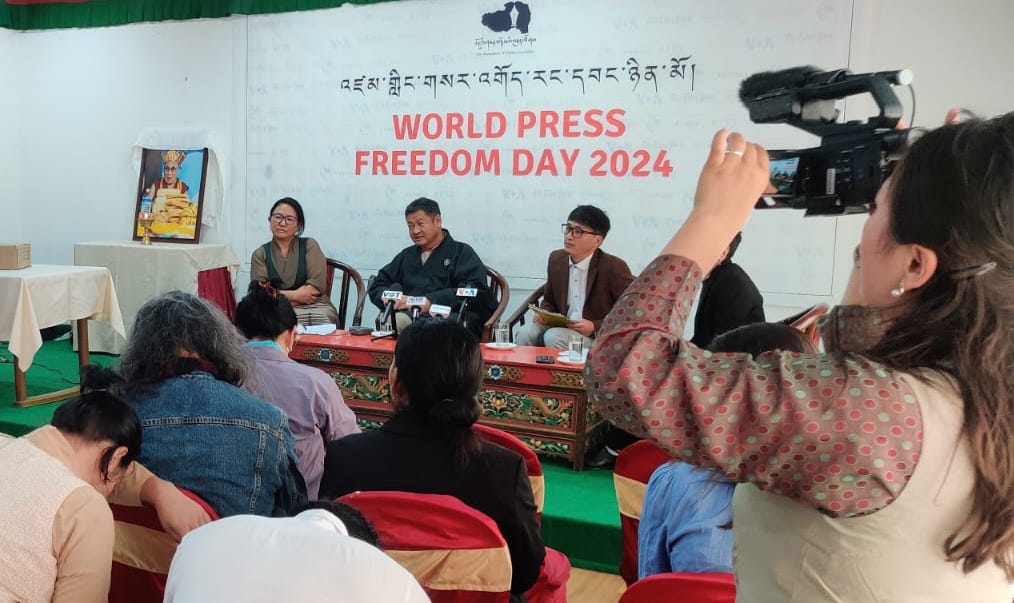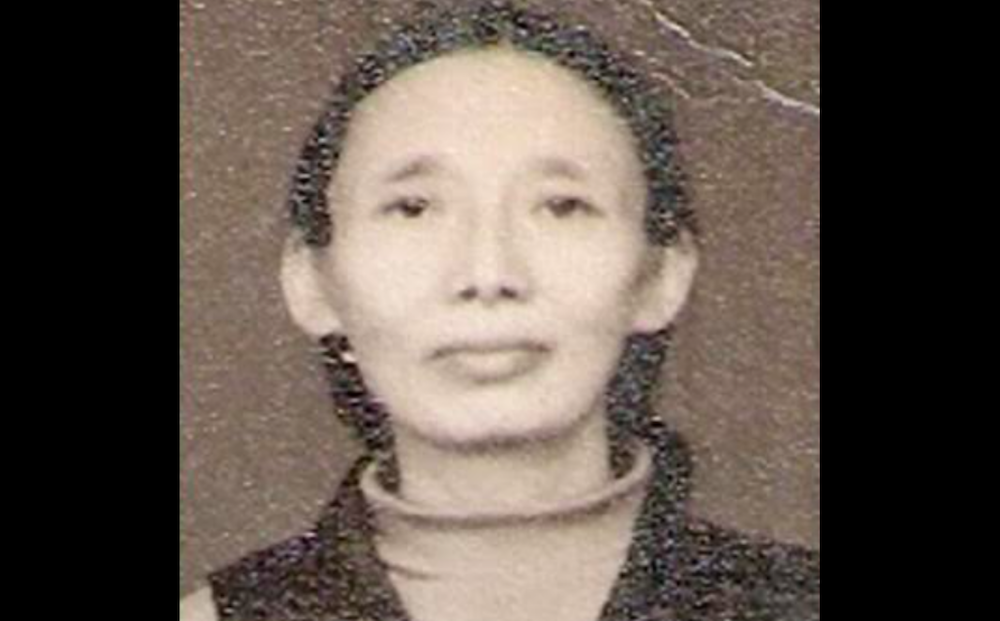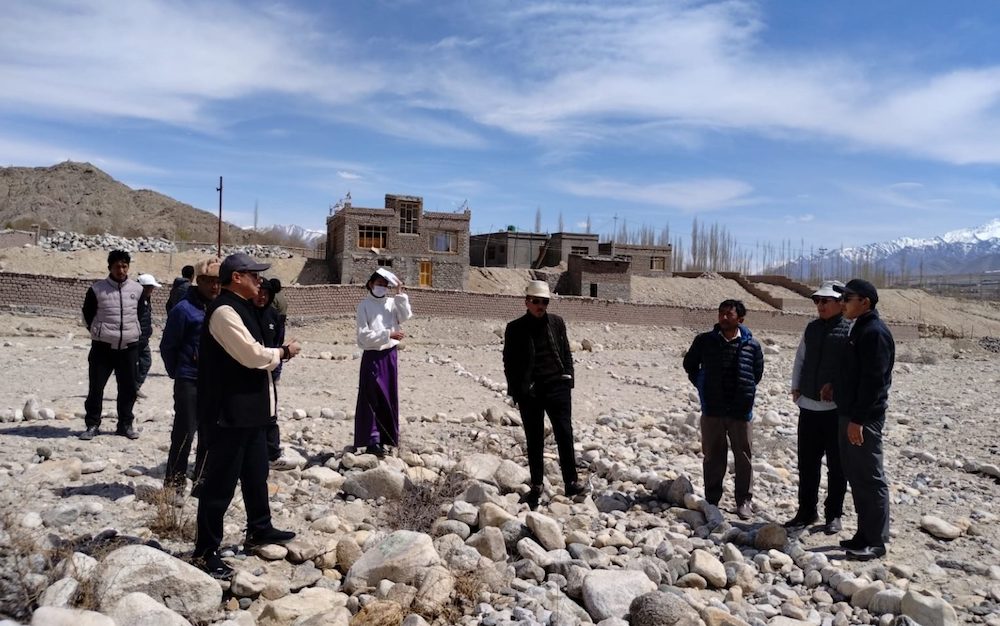A very interesting panel discussion was organized jointly by TPPRC and ITCO, in the name of Core group for Tibetan Cause, at India Habitat Center, New Delhi on the 2nd July 2003 at 3 pm.
Dr. N.K.Trikha, national convener of the Core group was the moderator. The panelists were Shri Bramah Chellaney, expert strategic analyst, Shri Sheshadri Chari, Editor, Organizer weekly, Shri Vijay Kranti, national co-convener of the core group and Shri Tashi Wangdi la, Representative of His Holiness the Dalai Lama, Delhi.
Foreign diplomats and correspondents, Indian media, ex army officials, civil servants and intellectuals packed the auditorium to full capacity and listened with intense interest.
Dr. N.K.Trikha welcomed the participants and introduced the subject.
Shri Sheshadri Chari who accompanied the Prime Minister to Beijing said that India has not changed the position on Tibet. All the previous governments have stated the position as “Tibet being an autonomous region of China” or once in 1958 as “Tibet being an autonomous region of Peoples Republic of China”. He said this government only recognized TAR as part of the territory of the PRC, thereby specifying the time frame and area of India’s recognition. TAR was created in 1965 and PRC was created in 1949. Since the Chinese side stressed on leaving behind historical baggage and looking forward to the reality on the ground, the government has not said anything about the status of entire Tibet or its historical status. The government thinks that this is a victory and not a sell-out. He said that the Chinese side wanted India to admit that Tibet is an inalienable part of China, which was refused. He admitted that in the entire negotiation process, which started three years back right till the eleventh hour in Beijing, Tibet and Sikkim took the maximum time. He said that the Government of India is very sensitive and concerned about the wishes of His Holiness the Dalai Lama and the exile administration and therefore took them into confidence.
Shri Bramah Chellaney said that the whole exercise was a self-delusion. He said that the government made Sikkim, which was a non-issue, into a major issue and linked it with Tibet, which is an international issue. He said that by agreeing to the word TAR, The Government of India has given its final recognition to the illegal occupation of Tibet by China and its creation of TAR. He said that the desire to open Nathula pass for trade from the Chinese side was there for a long time but all the previous governments had stuck to the condition that the Chinese side first recognize the status of Sikkim. He questioned the Government that when all the previous governments, even weak ones could stick to the term, why the need to hurry, merely trusting on assurances. He said that China has a long history of giving assurances and not living up to them. He thinks that the authorities have not studied history of Indo China relation properly and therefore re-living history. Nehru made fundamental mistakes, but in the 50 years of betrayal of Tibet, India has never stooped to the level as today. India gave away TAR as a present to the PRC.
He feels that it is incorrect to bring in the views of exile government because as they are our guests and therefore would not say anything against any government. He questioned the government about its policy on the rest of Tibet, which is not in TAR. He further said that the present notion that the trade relation precedes political relation and that massive trade with China will override political differences is like living in fool’s paradise. He cited the example of Japan and USA with whom China has massive trading links but continued political tension.
Mr Vijay Kranti refrained from giving any judgment but stressed on the long-term policy of Chinese government undermining India’s security. He said that the question of Tibet is India’s national interest. He explained in depth about China’s policy of encircling India strategically. He said that the very fact that China has tried hard to get the word “Tibet as inalienable part of China” and even after not getting the same, blowing in the press indicated that even after 50 years of Chinese rule in Tibet, they are not secured. He said that the logic of China and even Indian leaders like Natwar Singh saying that both the countries lived peacefully for 2200 years is nonsense. He elaborated that there never was an inch of common border between China and India for 2150 years. It is only 50 years after the occupation of Tibet, that India shared the border with China and during which we paid a heavy prize.
Mr. Tashi Wangdi presented the views of the exile government by saying that we do not see fundamental change in the stand taken by the Government of India regarding Tibet.
He believes that the improvement of relation between India and Tibet is beneficial to the dialogue process; the exile government is currently engaged with China.
He also gave brief information on the historical perspective of the formation of Tibet autonomy region and its absorption with the People’s Republic of China.
Since the presentations continued for two hours there was no much left for interactions. However question answers followed for half an hour. Most of the participants expressed appreciation for organizing such a discussion on this vexed question. This discussion certainly clarified many unfounded doubts and created renewed interests on the issue of Tibet.
Mr.J.Dorjee, Coordinator, ITCO proposed a vote of thanks and the discussion concluded successfully.









